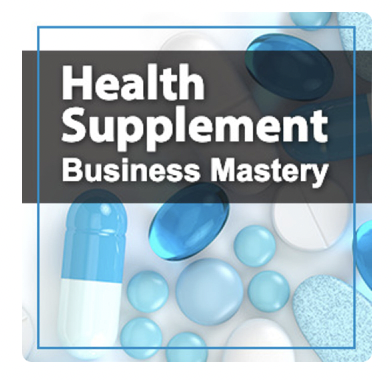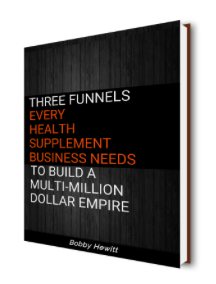Starting and growing a dietary supplement business selling directly to consumers online can be a rewarding but challenging endeavor. One of the biggest hurdles is having enough capital to get your business off the ground and fund its growth. Taking on debt strategically can give your supplement business the financing it needs to thrive. Here are some tips on how to use debt wisely to expand your direct-to-consumer supplement company:
Evaluate Your Funding Needs
Before taking on any debt, determine exactly what you need the money for and how much you need. Outline your startup costs, inventory purchases, marketing plans, and other expenses. Be realistic about how much funding you need to launch and sustain your business until revenue ramps up. Underestimating your needs can leave you cash-strapped, while overestimating can saddle you with unnecessary debt payments.
Explore Debt Options
There are several types of debt financing options available for small businesses, each with pros and cons. Some of the most common options for supplement companies include small business loans, lines of credit, merchant cash advances, equipment financing, and credit cards. Research interest rates, repayment terms, collateral requirements, and approval criteria to select the best debt solution for your needs and budget.
Small business loans from banks, credit unions, and online lenders provide lump sums that can be used for a variety of business expenses. Lines of credit offer revolving access to funds within a set limit. Merchant cash advances provide immediate cash in exchange for a percentage of future sales. Equipment financing allows you to pay for assets like refrigerators and capsule machines over time. Credit cards can provide quick financing but often have high interest rates.
Use Debt Strategically
The key to successfully leveraging debt is using it strategically. But don’t be afraid of using debt to grow the business.
Debt should be viewed as a tool, not free money. Take on only as much as you reasonably need and can manage based on projected cash flow. Avoid the temptation to tap debt to fund non-essential expenses. Target high-return investments that will generate revenue to pay off the debt. For example, if a large marketing campaign will bring in 50 new customers at $100 profit each, the $5,000 cost can likely be justified.
Set up a conservatively structured repayment schedule that aligns with your cash flow projections. Build in a buffer for unexpected expenses and revenue shortfalls. Borrow only what you are confident you can pay back on time and in full while continuing to operate your business smoothly. Missed or late payments can damage your business’s credit and ability to secure affordable financing in the future.
Use Debt for Specific Purposes
Be disciplined about what you use debt for. The most prudent uses are for one-time startup costs, large equipment purchases, real estate, and expansion expenses that require capital upfront but will yield ongoing rewards. Unwise uses of debt include funding unprofitable marketing campaigns, covering basic operating expenses, or purchasing rapidly depreciating assets. Taking on too much debt too early for the wrong purposes increases risk and jeopardizes sustainability.
For example, borrowing $20,000 to invest in an existing marketing funnel that is already working.
It’s smart to leverage debt to bring in more buyers. But you gotta know your numbers.
So let’s say you know the LTV (life time value) of a customer at 3 months is $400. And at 6 months their LTV is $800. And that LTV is based on an advertising channel and a top of funnel landing page.
Then using debt to scale that campaign today for money in 6 months is smart. That is as long as you can float the debt. Meaning those new buyers will be worth $800 in 6 months then it’s simply a matter of backing out how many new buyers will you need to pay off the debt in 3 months to break even so that you can profit off of them in month 6.
Putting $20,000 on credit cards to experiment with ten different ad platforms simultaneously when you do not know which will work does not.
Debt should be used to fuel growth, not speculation.
Shop Around for the Best Rates
Interest rates and fees vary widely between lenders and financing products. Shopping around is critical to ensure you get the most affordable debt capital. Having a healthy credit score in the 690+ range can help you secure the lowest available rates. Be upfront about what you need the money for and your ability to repay so lenders can make informed credit decisions. Comparison shop between local banks, national online lenders, non-profit community lenders, and merchant cash advance companies. Leverage competition to negotiate the best possible terms.
Even small rate differences of 1-2% can make a big impact on your total cost of capital over months and years of repayments. Prioritize affordable repayment terms over expediency so your debt does not become unmanageable.
Use Expert Guidance
If you are unfamiliar with the intricacies of debt financing, consult experienced professionals. CPAs, Small Business Development Centers, and business mentors can provide invaluable guidance on effectively utilizing debt. They can assess your situation, help structure optimal terms, provide insights on negotiating with lenders, and ensure you comply with loan covenants. With expert input, you can borrow smartly, avoid pitfalls, and set your supplement business up for sustainable success.
Start Conservatively
When just starting out, it is generally wise to take on less debt and rely more heavily on equity financing like personal savings, friends and family loans, and crowdfunding. As your business matures and builds revenue history, you can incrementally take on more debt for expansion. Too much debt too early increases the risk of default if sales do not materialize as quickly as expected. Build your foundation conservatively, prove your supplement concept, then use prudent debt to scale.
Prioritize Repayment
Treat debt repayment as a top priority, not an afterthought. Structure your loan terms so repayment fits reasonably within projected cash flow. Build a debt coverage cushion into your forecasts. Assign debt repayment the same or higher priority status as costs like rent and payroll. Never take on so much debt that repayment jeopardizes your ability to operate. If sales suffer, be proactive about contacting your lender immediately to discuss alternative repayment options.
With diligent repayment habits and transparent communication, lenders are more likely to work constructively with you if challenges arise. Defaulting on debt obligations damages important business relationships and can severely harm your supplement company’s financial standing, so make timely repayment a central focus.
Use Profits Wisely
As your supplement business becomes profitable, use a portion of earnings to pay down debts aggressively. Any extra cash not essential for short-term operations should go towards debt balances before other optional uses. Retiring debt faster limits interest expenses and frees up operating capital long-term. Prepaying debt also builds goodwill with lenders and improves future credit access.
When managed strategically, debt can be a powerful tool to start and grow an ambitious direct-to-consumer supplement brand. But reckless debt can also spell disaster. Borrow wisely, channel loans toward revenue-generating activities, repay diligently, and use profits to achieve debt freedom. With prudent financial management and hard work, your supplement company can thrive.
Discover the 3 funnels that can help your health supplement business succeed.

Listen to the Health Supplement Business Mastery Podcast for for dietary supplement entrepreneurs and marketers.



